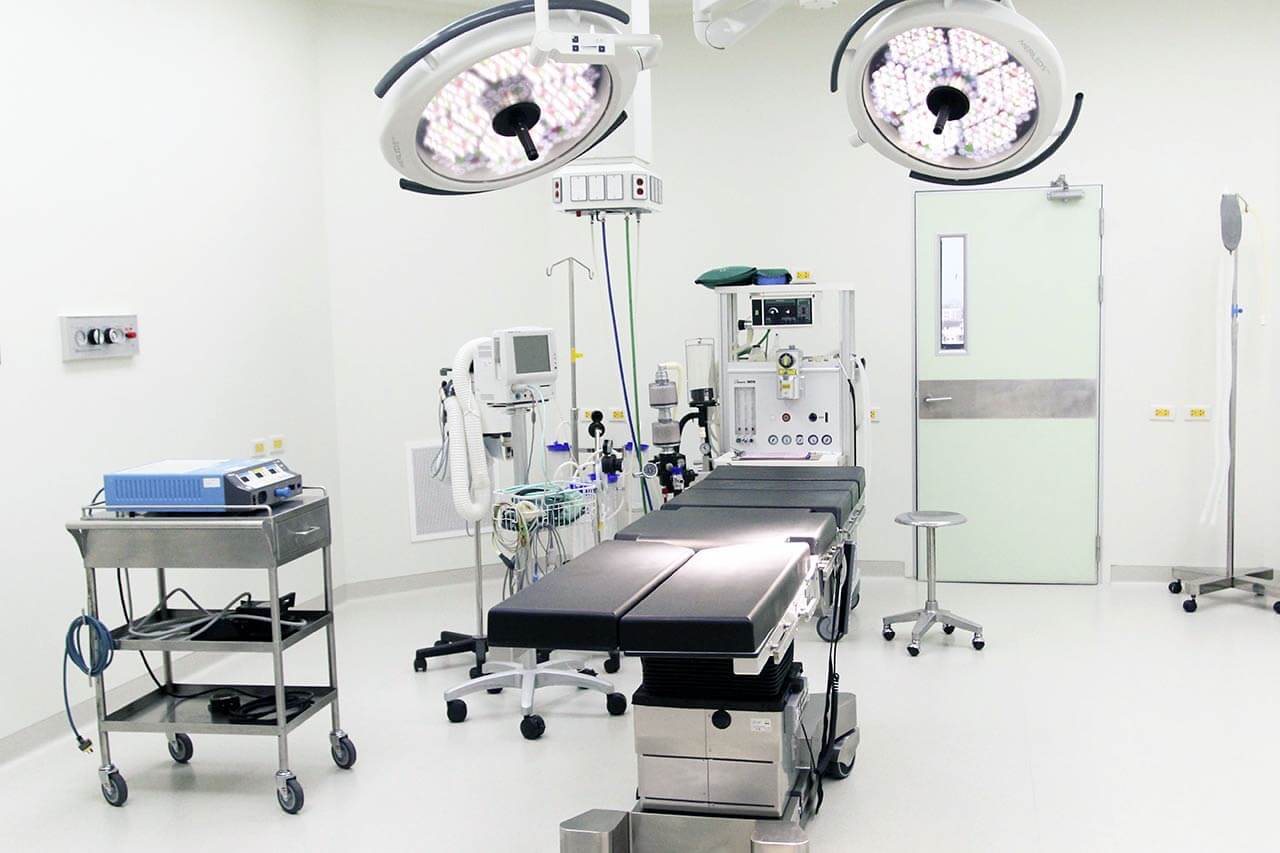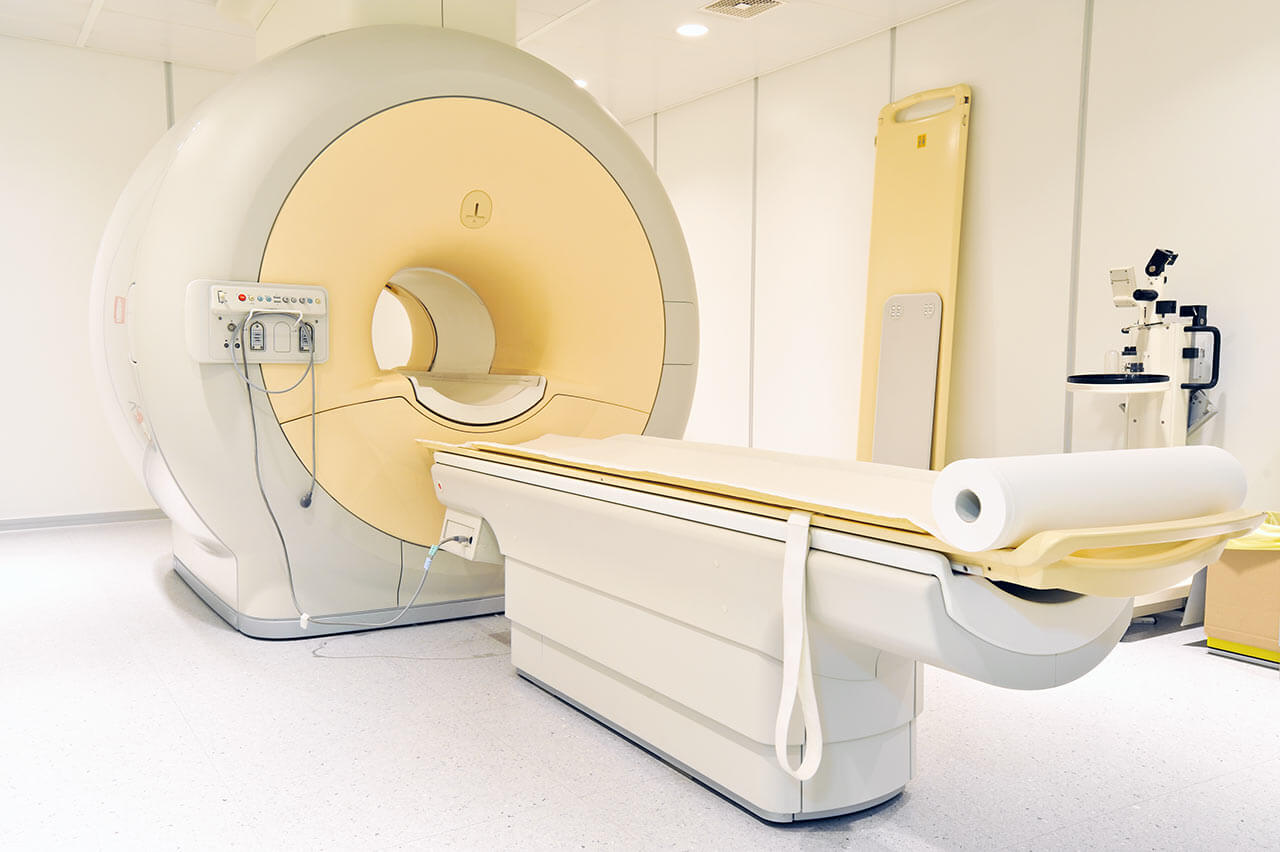
The program includes:
- Initial presentation in the clinic
- clinical history taking
- physical examination
- review of medical records
- laboratory tests:
- complete blood count
- general urine analysis
- biochemical analysis of blood
- TSH-basal, fT3, fT4
- tumor markers (Chromogranin A (CgA))
- indicators of inflammation (CRP, ESR)
- indicators blood coagulation
- abdominal ultrasound
- gastroscopy and colonoscopy with biopsy
- CT/MRI abdomen
- preoperative care
- resection of the tumor
- histologically and immunohistochemically
examination of the remote tissues - symptomatic treatment
- control examinations
- the cost of essential medicines and materials
- nursing services
- nutrition recommendations
- full hospital accommodation
- explanation of future recommendations
Required documents
- Medical records
- MRI/CT scan (not older than 3 months)
- PSMA PET/CT (if available)
- Biopsy results (if available)
Service
You may also book:
 BookingHealth Price from:
BookingHealth Price from:
About the department
The Department of Abdominal Surgery, Thoracic Surgery and Gastroenterology at the Hospital Schwabing Munich provides both diagnostics and treatment of the full range of abdominal diseases. In addition, the department's doctors admit patients with thoracic diseases. The department's therapeutic options include conservative treatment methods, interventional procedures and surgical interventions. Most operations are performed using minimally invasive surgical techniques, so postoperative recovery takes place as soon as possible. In addition, such operations allow the doctors to minimize pain after surgical treatment. The department is distinguished by its particular competence in hernia repair and has a quality certificate from the German Hernia Society. One of the most important focuses of the department's work is also the treatment of abdominal and thoracic cancers. Medical care is provided in accordance with current clinical protocols. The department is headed by Dr. med. Marco Rudolph.
The department's doctors are especially interested in the treatment of patients with benign and inflammatory diseases of the stomach, gallbladder, biliary tract, pancreas and intestines. In addition, the department's medical team specializes in the treatment of cancers of the above mentioned organs. If surgery is required, preference is always given to sparing minimally invasive surgical techniques. WHen performing such operations, the surgeon makes only a few small skin incisions with a size of 0.5-1.5 cm, which contributes to the accelerated healing of postoperative wounds, ensures minimal blood loss and excellent aesthetic results. In some cases, the department's doctors carry out endoscopic therapeutic procedures, for example, remove polyps in the stomach and intestines, as well as remove small benign gastrointestinal tumors. Prior to selecting a particular treatment method, the specialists accurately study the patient's medical history and conduct comprehensive diagnostics, the results of which play a decisive role in choosing therapeutic tactics. If digestive cancer is detected, the optimal treatment regimen is developed in cooperation with oncologists, radiologists, radiation therapists and other experts in related fields. The competence of the department's surgeons includes surgical resection of malignant tumors, while chemotherapy and radiation therapy are carried out within the specialized departments.
It should be noted that the department has excellent equipment for endoscopic diagnostics and therapeutic endoscopic procedures. Endoscopic examinations and therapeutic procedures are indicated for patients with diseases of the esophagus, stomach, gallbladder, pancreas, etc.
The patients with benign and malignant diseases of the lungs and other thoracic organs can undergo sparing surgical treatment using an innovative surgical technique, which is the standard in hospitals in countries with developed medicine. The department's surgeons successfully perform video-assisted thoracoscopic surgery (VATS) to remove benign and malignant neoplasms of the lungs, thoracic wall, mediastinal organs, diaphragm, as well as lung metastases. The department's doctors also specialize in the emergency surgical treatment of these diseases.
The department's range of medical services includes:
- Diagnostics and surgical treatment of benign and inflammatory diseases of the stomach, gallbladder, biliary tract, pancreas and intestines
- Diagnostics and surgical treatment of malignant diseases of the stomach, gallbladder, biliary tract, pancreas and intestines
- Diagnostics and surgical treatment of hernias
- Inguinal hernia
- Umbilical hernia
- Diagnostics and surgical treatment of rectal diseases
- Abscesses
- Hemorrhoids
- Anal fistulas
- Diverticular disease
- Colon cancer
- Diagnostics and surgical treatment of diseases of the lungs and other thoracic organs
- Benign and malignant neoplasms of the lungs, thoracic wall, mediastinal organs, diaphragm
- Lung metastases
- Pulmonary emphysema
- Diagnostics, conservative, endoscopic and surgical treatment of gallstone disease
- Endoscopic diagnostics and treatment of gastrointestinal pathologies
- Other services
Curriculum vitae
Higher Education and Professional Career
- 1990 - 1996 Study of Human Medicine at the Ruprecht Karl University of Heidelberg and University of the Witwatersrand in South Africa.
- 1996 - 1998 Work at the University Hospital Mannheim.
- 1998 - 2003 Work at the University Hospital Heidelberg.
- Since 2003 Head of the Department of Abdominal Surgery, Thoracic Surgery and Gastroenterology at the Hospital Schwabing Munich, as well as of the department of the same name at the Hospital Bogenhausen Munich.
Qualifications
- Board certification in General Surgery.
- Board certification in Abdominal Surgery.
- Board certification in Thoracic Surgery.
- Board certification in Vascular Surgery.
Clinical Interests
- Minimally invasive abdominal surgery.
- Minimally invasive thoracic surgery.
Memberships in Professional Societies
- German Society of Surgery (DGCH).
- German Society of General and Abdominal Surgery (DGAV).
- German Society of Thoracic Surgery (DGT).
Photo of the doctor: (с) München Klinik Schwabing
About hospital
The Hospital Schwabing Munich is one of the oldest medical facilities in the Schwabing region with a history of over 100 years. The hospital is proud of the excellent state-of-the-art equipment, modern infrastructure, highly professional medical personnel and location in a picturesque park area. The medical complex is the academic hospital of the University Hospital of Ludwig Maximilian University of Munich and the University Hospital Rechts der Isar Munich, therefore, it offers unique innovative diagnostic and treatment methods. The treatment can be provided both on an inpatient and outpatient basis. The work of the medical center is based on an individual approach to each clinical case, as well as on the strictest adherence to high standards of quality, hygiene and safety.
The hospital has a large number of beds for patient hospitalization – more than 700 beds. The medical facility admits over 125,000 patients for diagnostics and treatment, and this figure grows steadily every year, which indicates the authority of the hospital not only in the region, but also throughout the country. In addition, the medical center often admits foreign patients for medical treatment.
The hospital presents almost all the main areas of modern medicine, including oncology, surgery, gynecology, gastroenterology, endocrinology, diabetology, otolaryngology, pulmonology, thoracic surgery, orthopedics, traumatology, neurosurgery, etc. In addition, the specialists of the hospital admit young patients for treatment, providing them with proper medical care.
Particular attention should be given to the competent team of doctors who have vast clinical experience, thanks to which they provide patients with effective treatment even in particularly complex clinical cases. According to the prestigious Focus magazine, many doctors of the clinic have been repeatedly ranked among the best German specialists. The experts also take care of the patients' comfort during treatment, surround them with care and show a humane attitude, supporting patients on their way to recovery.
Photo: (с) depositphotos
Accommodation in hospital
Patients rooms
The patients of the Hospital Schwabing Munich live in comfortable single, double and triple rooms with a modern design. The patient rooms have everything necessary for maximum comfort of patients. Each patient room has an ensuite bathroom with shower and toilet. All patient rooms are equipped with a telephone, which is available for an extra fee via a special card. The standard room furnishings include an automatically adjustable bed, a bedside table, a wardrobe, a table and chairs for receiving visitors. Wi-Fi is also available in the patient rooms.
If desired, the patient can stay in the enhanced comfort patient room, which additionally includes a safe, a minifridge and upholstered furniture.
The hospital also has a library with a large assortment of books, magazines, CDs and DVDs, a shop, a hairdressing saloon and a cafe where the patient can enjoy tasty snacks or a cup of hot tea, aromatic coffee and soft drinks.
Meals and Menus
The patients of the hospital are offered tasty and healthy three meals a day: breakfast, lunch and dinner. All dishes are cooked from fresh food available in the region. Breakfast and dinner are served buffet style, while for lunch the patient has a choice of three menus.
If you are on a specific diet for some reason, you will be offered an individual menu. Please inform the medical staff about your dietary preferences prior to the treatment.
Further details
Standard rooms include:
Religion
The religious services are available upon request.
Accompanying person
During the inpatient program, the accompanying person can live with the patient in a patient room or a hotel of his choice. Our managers will help you choose the most suitable option.
Hotel
During the outpatient program, the patient can stay at the hotel of his choice. Our managers will help you choose the most suitable option.




